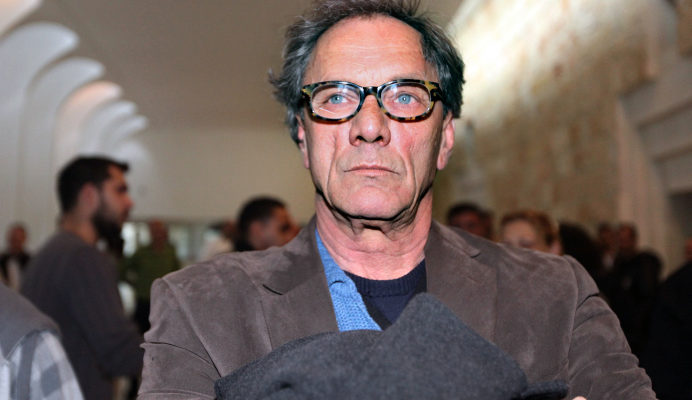The film, which is presented as a documentary but makes unsubstantiated claims about IDF soldiers committing a massacre in Jenin during the Second Intifada, has been the subject of court battles for decades.
By Lauren Marcus, World Israel News
Israeli Arab director Mohammed Bakri’s 2002 film Jenin, Jenin cannot be screened in Israel and all copies of the movie in the Jewish State should be seized, ruled Israel’s Lod District Court on Monday.
Judge Halit Salash also ruled that Bakri must pay 175,000 shekels in damages to Nissim Magnaji, a former IDF soldier depicted in Jenin, Jenin. Magnaji filed a libel suit against Bakri in 2017, asking for 2.6 million shekels in compensation.
The film, which is presented as a documentary but makes false allegations of a massacre committed by IDF soldiers in Jenin during the Second Intifada, has been the subject of court battles for decades.
The “Jenin massacre” has been described a modern-day blood libel, started by senior Palestinian official Saeb Erekat who falsely told CNN on April 7, 2002 that 500 Palestinians had been killed in the Jenin refugee camp. In reality, Israel used ground troops instead of the air force in order to minimize civilian casualties. As a result, over 20 IDF soldiers were killed in booby trapped buildings.
When the film was originally released in 2002, Israel’s Film Censorship Board banned it. A Supreme Court ruling swiftly overturned the ban.
Soon after, five IDF reservists sued Bakri for libel, claiming that Jenin, Jenin falsely accused them of participating in war crimes during Operation Defensive Shield.
In 2007, the Supreme Court ruled that although Bakri’s allegations in the film were false, he was not guilty of libel as he had not specifically mentioned or depicted any of the reservists who sued.
As the film was criticized for its one-sided depiction of events and its inaccuracy, Bakri’s attorney, Avigdor Feldman, told Haaretz, “Bakri doesn’t say anything in this film. The people who talk are those he filmed.”
“So the residents of the refugee camp say things which sometimes are true and sometimes not. It’s a movie. It reflects the subjective understanding of the speakers. Sometimes they say things that are harsher [than they actually were] because that is how he experienced it.”
Monday’s ruling, however, found that Bakri was responsible for slandering Maganji, who appeared in archival footage used in the film.
“The plaintiff, a private person who was called by the State of Israel to a military service during Operation Defensive Shield, and finds himself being presented in the film in question, as someone who steals the entire property of another person – a helpless old person – as part of an alternative reality, completely the product of the defendant’s imagination,” said Salash.
Salash slammed Bakri for “not checking, even slightly, the claims of the people he interviewed, but chose to present them as part of a film presuming to reflect facts and reality.”
IDF Chief of Staff Aviv Kochavi praised the decision, calling it a “a sharp and clear message backing IDF fighters in the past, present and future, as well as for bereaved families.”
Right-wing NGO Im Tirtzu said that while they’re pleased with the decision, based on previous court decisions, the group was not ready to celebrate just yet. “We hope that the ombudsman and the State Attorney’s Office will stand by the fighters even when the lying director Bakri will petition the High Court,” they said.
“Unfortunately, to this day the High Court has proven whose side its on time and time again.”
Bakri says he will appeal the ruling to the Supreme Court. “I’m going to appeal. I’m not happy to hear about the ruling,” he said.
Joint List MK Aida Touma-Suleiman said the decision was an attempt to “silence” Bakri’s “exposure of the true wicked and criminal face of the occupation.”




